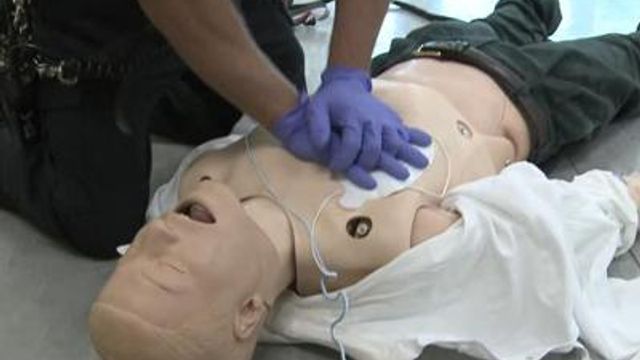Fear keeps many from performing CPR during emergencies
When someone goes into cardiac arrest, every moment counts. And while most people know that performing conventional CPR can save lives, many hesitate to help unconscious, unresponsive strangers because they may have to perform rescue breathing or they're afraid they may harm the victim.
Posted — UpdatedAnd while most people know that performing conventional CPR can save lives, many hesitate to help unconscious, unresponsive strangers because they may have to perform rescue breathing or they're afraid they may harm the victim.
According to Al Byrd, the director of the Chavis Park Community Center in Raleigh, many bystanders don't help because they aren't confident in what their knowledge of life-saving techniques.
"The barrier for most people is the old way of learning things, in terms of breathing," he said.
In reality, hard and fast chest compressions are normally all a victim needs until emergency services personnel arrive.
"The body has enough oxygen inside to sustain until emergency help arrives," Wake County EMS district chief Jeff Hammerstein said. "When we get there, we'll deal with oxygenation."
As for the fear of hurting a victim by performing CPR, Hammerstein said people should remember that CPR could be the difference between life and death.
"Don't be worried about breaking a rib," he said. "The person's emergency is their heart not beating, and they're not circulating."
Good Samaritan laws protect those who step up to help someone in need.
Another thing to look for during a cardiac emergency is an automatic external defibrillators, or AED. They can be found in many public areas and often include voice commands to help untrained bystanders shock a person's heart.
Hammerstein said AEDs analyze the heart to determine if a shock is needed, alleviating the guesswork for bystanders.
"If the heart doesn't need to be shocked, it won't even allow you to do it," he said.
• Credits
Copyright 2024 by Capitol Broadcasting Company. All rights reserved. This material may not be published, broadcast, rewritten or redistributed.





